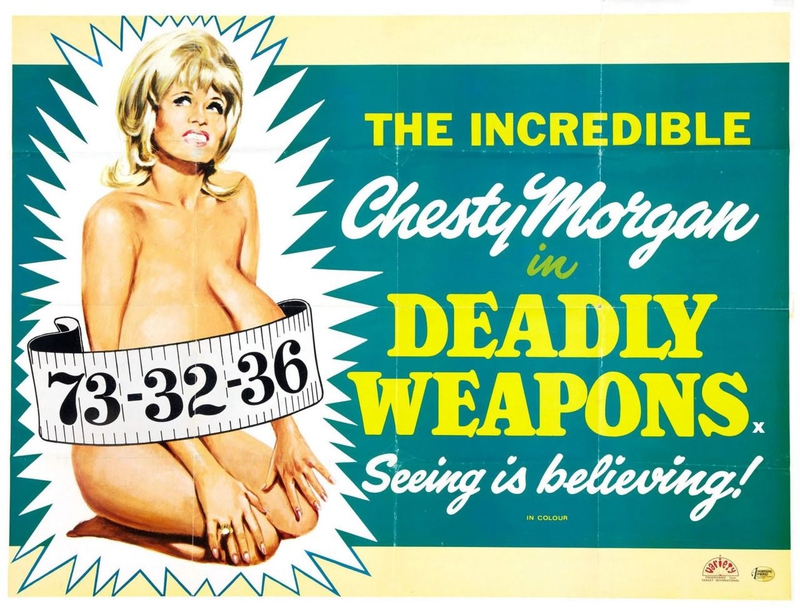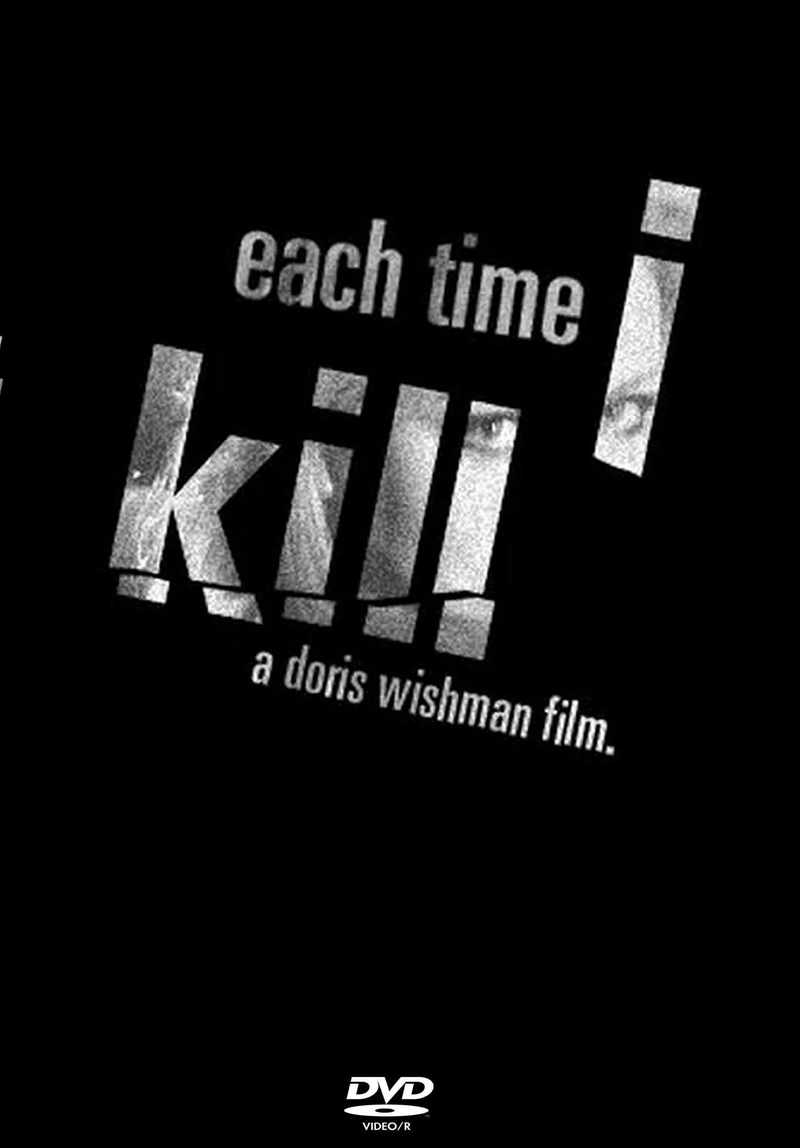Editor's Note: In each Wild Women with Steak Knives entry, author Alexandra Heller-Nicholas examines a woman-directed horror film that's been largely overlooked or forgotten. Read them all here!
Much is made of Doris Wishman’s earlier career as a sexploitation auteur, and fair enough. She was making stuff like Hideout in the Sun in the early 1960s in a field dominated by men, before going on to make her legendary roughies, peaking in the brilliant Bad Girls Go to Hell in 1965 and reaching broader notoriety with her Chesty Morgan films in 1974, Deadly Weapons and Double Agent 73. Why was she called Chesty Morgan, you ask? For those of you who need a reminder, I present Exhibit A:

Seeing is believing indeed. I adore Wishman’s films, the Bad Girls era roughies in particular, but of course, later in her career, she took the violent streak that ran through those films and framed them more explicitly in a horror context in two films, the troubled A Night to Dismember in 1983, and the film I want to talk about today - made in 2002 but released in 2007/8 - Each Time I Kill.
As many have commented before me, the best thing about A Night to Dismember is its title, but that’s not exactly Wishman’s fault. She decided on the back of the success of things like John Carpenter’s Halloween that horror was the way to go as she moved into the 1980s, and while most of her early films were microbudget affairs made on borrowed money, the welcoming climate for horror by the time she tackled it head on was positive enough for her to receive actual formal funding. The problem with this, of course, was that she had to come up with the goods, and when the final print was substantially damaged in a fire, she basically had to cobble together whatever she could for the final release. By anyone’s standards, A Night to Dismember is far from great, but in the circumstances, it was hardly the film Wishman expected it to be. Legend holds that the entire experience was so awful that Wishman effectively walked away from filmmaking altogether before returning in her final years to make Each Time I Kill and the delightfully named Dildo Heaven in 2002 (if you’ve not seen it, this interview on Conan O’Brien she did to promote that film alongside Roger Ebert is a gift).
Each Time I Kill, however, is something altogether different from A Night to Dismember. The only real link between them on a content level we could concretely make is the fact that Each Time I Kill literally includes footage from the earlier film as a movie within a movie, viewed by its characters. Each Time I Kill follows a troubled young high school student called Ellie Saunders, riddled by insecurities about her frumpy physical appearance. Convinced that all of her problems would magically disappear if she could become beautiful, the appearance of a magical amulet grants her the ability to do precisely that. Echoing body swap horror movies, each beautiful girl she kills off through an amulet-related ritual grants her a specific feature. These all come together to make Ellie, in her mind, more attractive (new hair, new boobs, etc.). But yes, there are clearly ethical concerns here about the otherwise quite lovely Ellie’s turn to murder, which sit in a really interesting relation to those in the film who liked her before she transformed - and notably, who liked her for who she was and found beauty in her regardless of her presenting a less than stereotypical idea of “prettiness”.
This is a silly film, an extremely low-budget film, and an extremely joyful film. There are cameos galore: Fred Schneider from the B-52’s plays Ellie’s dad, B-grade cult legend Linnea Quigley (she’s superb), and - most famously - even John Waters pops up in a cinema scene.

Wishman didn’t live long enough to finish the film herself, and the film ends with a dedication to the exploitation queen, played alongside footage of Wishman directing her main actor Tiffany Paralta as to how to physically perform the role of Ellie. While she was making it, Wishman was dying from lymphoma, hiding this fact from her cast and crew until she was too sick to disguise it anymore. She filmed it in 2002, just before she died at the age of 90 in August of that year, leaving detailed descriptions for how the film was to be finalized after her death, having celebrated her birthday only a couple of months earlier. A director to the end, Wishman was a punk feminist filmmaker before that was even considered a thing, and she died making movies right to the very end. Each Time I Kill may not be the most polished film you’ve ever seen, but it is a glorious, perfect swan song for one of the most important figures in exploitation film history.






